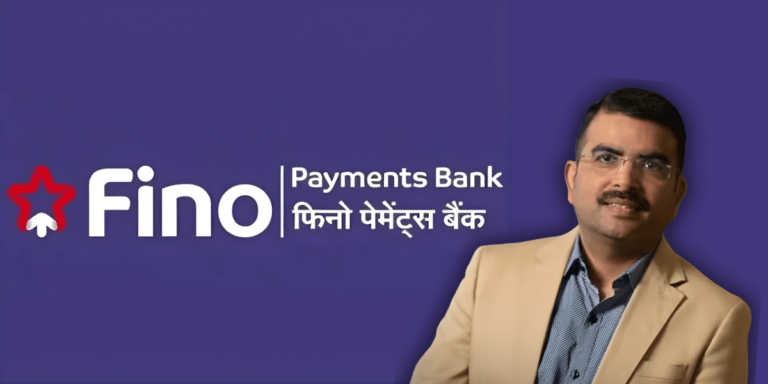
The Unified Payments Interface (UPI) has been a game-changer in the Indian financial landscape, revolutionizing the way people transact digitally. Since its inception in 2016, UPI has grown exponentially, becoming one of the most popular payment systems in the world. But now, UPI is set to transcend borders, going global and transforming the way international transactions are conducted. In this blog post, we will explore the implications of UPI going global, its potential impact on the global financial ecosystem, and how it can benefit users and businesses worldwide.
What is UPI?
Before diving into the global expansion of UPI, let’s first understand what UPI is and why it has been so successful in India.
The Birth of UPI
Unified Payments Interface (UPI) is a real-time payment system developed by the National Payments Corporation of India (NPCI). It was launched in April 2016 with the aim of facilitating instant fund transfers between bank accounts through mobile devices. UPI allows users to link multiple bank accounts to a single mobile application, enabling seamless money transfers and payments.
Key Features of UPI
- Instant Transfers: UPI enables real-time fund transfers between bank accounts, 24/7, including weekends and holidays.
- Interoperability: UPI is interoperable across all banks and payment service providers, making it a universal payment solution.
- Security: UPI transactions are secured with two-factor authentication, ensuring the safety of users’ funds.
- Ease of Use: UPI is user-friendly, allowing users to make payments with just a few clicks on their mobile phones.
- Cost-Effective: UPI transactions are generally free or have minimal charges, making it an affordable option for users.
UPI’s Success in India
UPI’s success in India can be attributed to several factors:
- Government Support: The Indian government has been a strong advocate for digital payments, promoting UPI as a key component of its Digital India initiative.
- Widespread Adoption: UPI has been widely adopted by banks, payment service providers, and merchants, making it accessible to a large user base.
- Innovation: The continuous innovation in UPI, such as the introduction of UPI 2.0 with features like overdraft facility and invoice in the inbox, has kept it relevant and user-friendly.
- COVID-19 Pandemic: The pandemic accelerated the adoption of digital payments, with UPI emerging as the preferred mode of payment for many Indians.
UPI Goes Global: A New Era in Digital Payments
With its success in India, UPI is now poised to go global, expanding its reach to other countries and transforming the way international transactions are conducted. Let’s explore the key developments and implications of UPI’s global expansion.
UPI’s International Expansion: Key Developments
- Partnerships with International Payment Systems: NPCI has been actively seeking partnerships with international payment systems to facilitate cross-border transactions. For instance, NPCI has partnered with payment networks like Visa and Mastercard to enable UPI payments abroad.
- Integration with Global Payment Platforms: UPI is being integrated with global payment platforms like Google Pay and WhatsApp Pay, allowing users to make international transactions using UPI.
- Collaboration with Foreign Banks: NPCI is collaborating with foreign banks to enable UPI payments in their respective countries. This will allow users to make payments to merchants and individuals in those countries using UPI.
- UPI in the UAE: One of the first countries to adopt UPI outside India is the United Arab Emirates (UAE). NPCI has partnered with the UAE’s Central Bank to enable UPI payments in the country, allowing Indian expatriates and tourists to make seamless transactions.
- UPI in Singapore: NPCI has also partnered with the Monetary Authority of Singapore (MAS) to enable UPI payments in Singapore. This collaboration will facilitate cross-border transactions between India and Singapore, benefiting businesses and individuals in both countries.
- UPI in Bhutan: Bhutan became the first country to adopt UPI outside India, with the Royal Monetary Authority of Bhutan integrating UPI into its payment system. This move has made it easier for Indian tourists and businesses to transact in Bhutan.
Benefits of UPI’s Global Expansion
The global expansion of UPI offers several benefits to users, businesses, and the global financial ecosystem.
For Users
- Convenience: UPI’s global expansion will make it easier for users to make international transactions without the need for multiple payment apps or bank accounts.
- Cost-Effective: UPI transactions are generally more cost-effective than traditional international payment methods like wire transfers or credit card payments.
- Security: UPI’s two-factor authentication ensures the security of international transactions, giving users peace of mind.
- Real-Time Transactions: UPI enables real-time fund transfers, allowing users to make instant payments to merchants and individuals abroad.
For Businesses
- Increased Market Reach: UPI’s global expansion will enable businesses to reach a wider audience, including customers in countries where UPI is adopted.
- Reduced Transaction Costs: UPI’s low transaction costs will benefit businesses by reducing the cost of cross-border payments.
- Faster Settlements: UPI’s real-time transaction capabilities will enable businesses to receive payments faster, improving cash flow and reducing the risk of payment delays.
- Enhanced Customer Experience: UPI’s ease of use and convenience will enhance the customer experience, leading to increased customer satisfaction and loyalty.
For the Global Financial Ecosystem
- Promotion of Digital Payments: UPI’s global expansion will promote the adoption of digital payments worldwide, contributing to the growth of the global digital economy.
- Interoperability: UPI’s interoperability across different payment systems and banks will facilitate seamless cross-border transactions, reducing the complexity of international payments.
- Financial Inclusion: UPI’s global expansion will contribute to financial inclusion by providing access to digital payment solutions to underserved populations in different countries.
- Innovation: UPI’s global presence will drive innovation in the global payment industry, leading to the development of new and improved payment solutions.
Challenges and Considerations
While UPI’s global expansion offers numerous benefits, there are also challenges and considerations that need to be addressed.
- Regulatory Compliance: UPI’s expansion into different countries will require compliance with local regulations and standards, which may vary from country to country.
- Currency Conversion: UPI transactions in different countries will involve currency conversion, which may result in additional costs and complexities.
- Security Concerns: As UPI expands globally, it will need to address security concerns related to cross-border transactions, including fraud and cyber threats.
- Infrastructure Requirements: UPI’s global expansion will require the development of robust infrastructure to support cross-border transactions, including partnerships with local banks and payment systems.
- User Education: UPI’s global expansion will require educating users in different countries about how to use UPI for international transactions, which may involve language and cultural considerations.
The Future of UPI: A Global Payment Revolution
The global expansion of UPI marks the beginning of a new era in digital payments. As UPI continues to grow and evolve, it has the potential to become a global standard for real-time payments, transforming the way people and businesses transact across borders.
Potential Future Developments
- Expansion to More Countries: UPI’s success in countries like the UAE, Singapore, and Bhutan is likely to encourage more countries to adopt UPI, leading to its widespread global adoption.
- Integration with More Payment Platforms: UPI is expected to integrate with more global payment platforms, making it even more accessible to users worldwide.
- Enhanced Features: UPI is likely to introduce new features and functionalities to cater to the needs of international users, such as multi-currency support and advanced security measures.
- Collaboration with Fintech Companies: UPI’s global expansion will involve collaboration with fintech companies to develop innovative payment solutions that leverage UPI’s capabilities.
- Blockchain and UPI: The integration of blockchain technology with UPI could further enhance the security and efficiency of cross-border transactions, paving the way for a new generation of digital payments.
The Role of Governments and Regulators
Governments and regulators will play a crucial role in the global expansion of UPI. They will need to create a conducive regulatory environment that supports the adoption of UPI while ensuring the security and stability of the financial system.
- Regulatory Frameworks: Governments will need to establish regulatory frameworks that facilitate the adoption of UPI while addressing issues related to data privacy, security, and consumer protection.
- Cross-Border Collaboration: Regulators in different countries will need to collaborate to create a seamless cross-border payment ecosystem that supports UPI’s global expansion.
- Promotion of Digital Payments: Governments can promote the adoption of UPI by incentivizing digital payments and raising awareness about the benefits of UPI.
The Role of Businesses and Financial Institutions
Businesses and financial institutions will also play a key role in the global expansion of UPI. They will need to embrace UPI as a payment solution and integrate it into their operations to benefit from its capabilities.
- Adoption of UPI: Businesses and financial institutions will need to adopt UPI as a payment solution to cater to the needs of their customers and stay competitive in the global market.
- Innovation: Businesses and financial institutions can leverage UPI’s capabilities to develop innovative payment solutions that enhance the customer experience and drive growth.
- Partnerships: Businesses and financial institutions can form partnerships with UPI and other payment systems to create a seamless payment ecosystem that supports cross-border transactions.
UPI’s global expansion is a significant milestone in the evolution of digital payments. By transcending borders and transforming the way international transactions are conducted, UPI has the potential to revolutionize the global financial ecosystem. As UPI continues to grow and evolve, it will offer numerous benefits to users, businesses, and the global economy, driving the adoption of digital payments and promoting financial inclusion worldwide.
The journey of UPI from a domestic payment system to a global payment revolution is just beginning. With the support of governments, regulators, businesses, and financial institutions, UPI is poised to become a global standard for real-time payments, shaping the future of digital payments and transforming the way we transact across borders.
As we look ahead, the global expansion of UPI represents a new era in digital payments, one that promises to bring greater convenience, security, and efficiency to users and businesses worldwide. The future of UPI is bright, and its impact on the global financial ecosystem will be profound. So, let’s embrace this new era of digital payments and witness the transformation of UPI into a global payment revolution.
-
The Supabase India Ban Explained: Who’s Affected, Why It Happened, and What Comes Next
India silently blocked Supabase on February 24 — no warning, no reason given. Thousands of apps broke overnight.
-
Geopolitical Shock: Bitcoin Tumbles Under $64K Following US-Israel Military Strike on Iran
Bitcoin just crashed below $64,000 — and a military strike triggered it. But here’s what nobody’s telling you:
-
New EPFO Rule 2026: You Can Now Withdraw 100% of Your PF Balance Without Resigning — Here’s How
EPFO just changed the rules — and most employees have no idea they can now access their full































